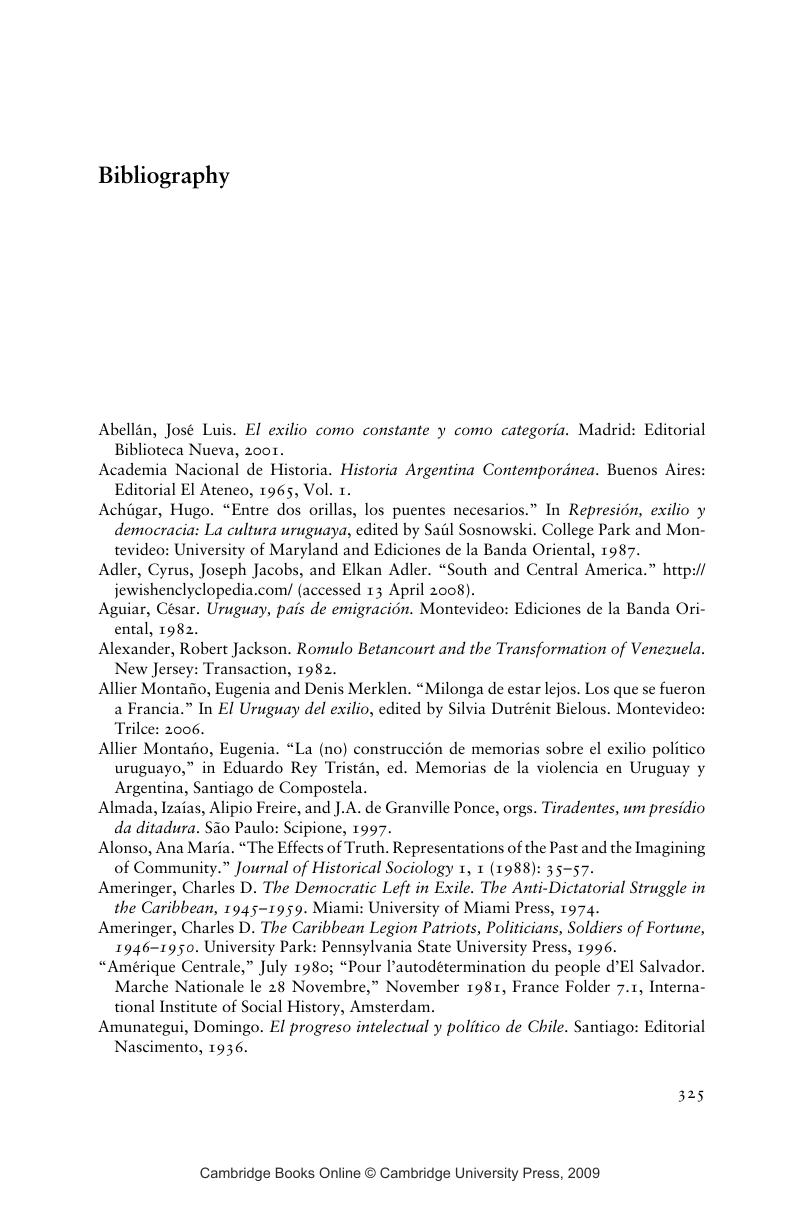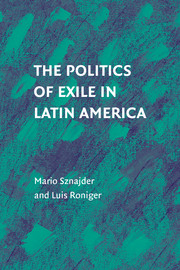Book contents
- Frontmatter
- Contents
- Acknowledgments
- List of Acronyms
- Introduction: The Politics of Exile
- 1 Defining the Exilic Condition
- 2 Forceful Displacement, the Construction of Collective Identities, and State Formation
- 3 The Format of Early Exile
- 4 Sites of Exile
- 5 Widening Exclusion and the Four-Tiered Structure of Exile
- 6 Exile Communities, Activism, and Politics
- 7 Presidents in Exile
- 8 Is Return the End of Exile?
- Bibliography
- Index
- References
Bibliography
Published online by Cambridge University Press: 28 July 2009
- Frontmatter
- Contents
- Acknowledgments
- List of Acronyms
- Introduction: The Politics of Exile
- 1 Defining the Exilic Condition
- 2 Forceful Displacement, the Construction of Collective Identities, and State Formation
- 3 The Format of Early Exile
- 4 Sites of Exile
- 5 Widening Exclusion and the Four-Tiered Structure of Exile
- 6 Exile Communities, Activism, and Politics
- 7 Presidents in Exile
- 8 Is Return the End of Exile?
- Bibliography
- Index
- References
Summary

- Type
- Chapter
- Information
- The Politics of Exile in Latin America , pp. 325 - 346Publisher: Cambridge University PressPrint publication year: 2009

